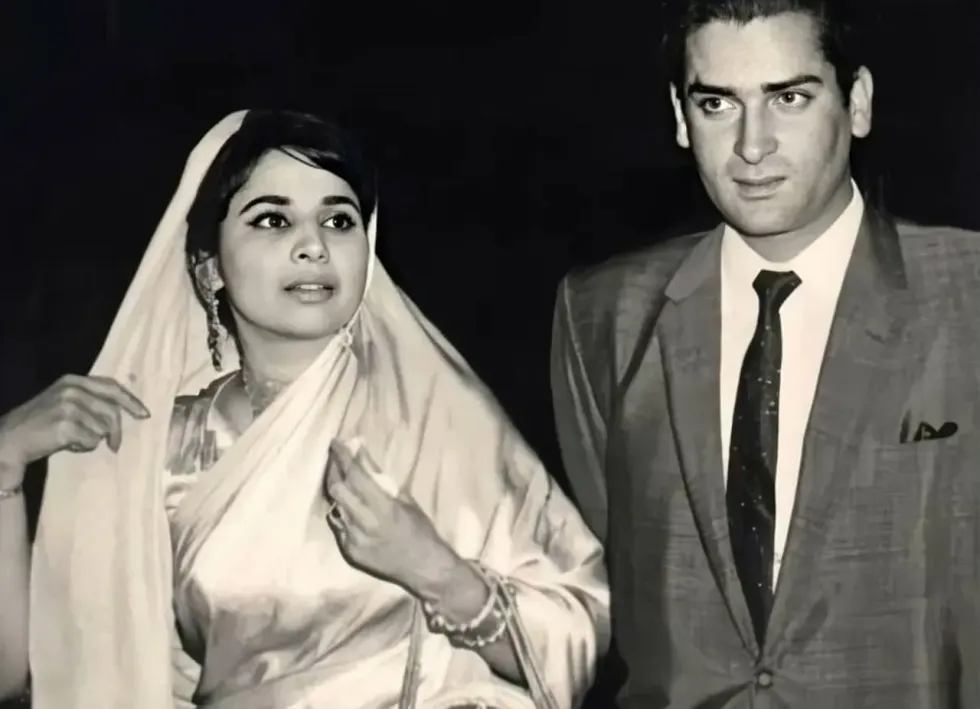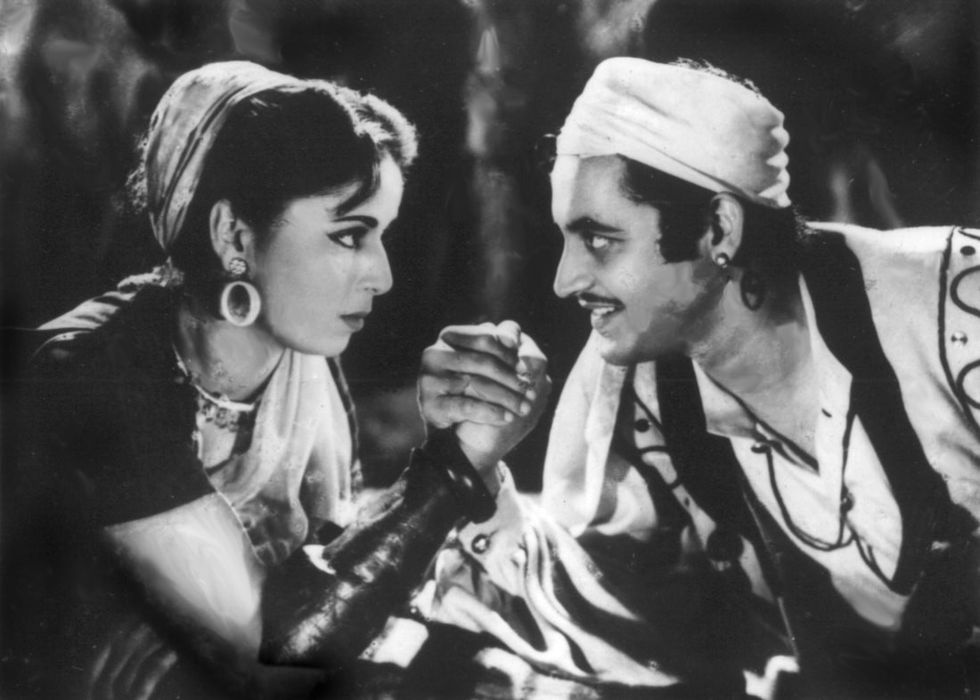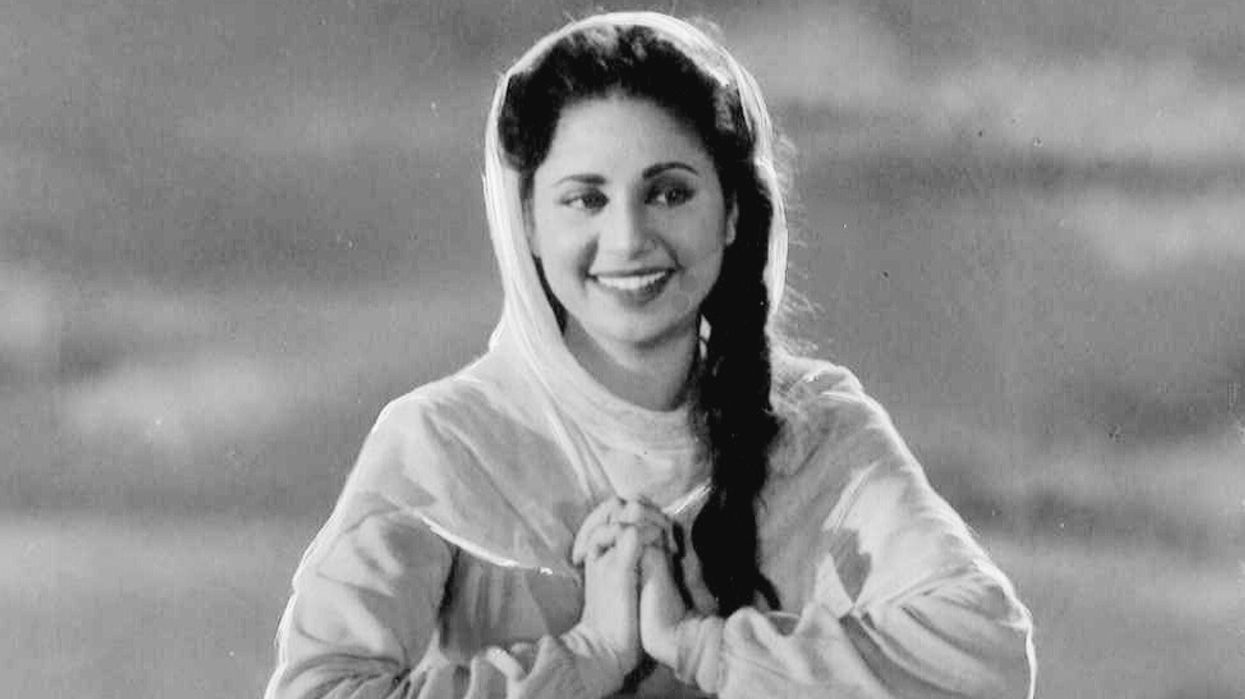THE greatness of late film star Geeta Bali was evident in her magnetic screen presence, exceptional acting talent, and lasting influence on popular culture.
She also embodied girl power by living life on her own terms and famously marrying actor Shammi Kapoor. Despite retiring early and tragically passing away at the age of 34 on January 21, 1965, she left behind a remarkable legacy and remains one of Indian cinema’s greatest icons.
Eastern Eye marks her death anniversary this week with 21 fascinating facts about her life and action-packed career.
1. The Indian actress was born Harikirtan Kaur in Amritsar, Punjab, in 1930 and later adopted the screen name Geeta Bali. She began her career as a child actress at the age of 12 with The Cobbler (1942).
2. The naturally gifted performer made her debut as a lead actress in Badnaami (1946), where her lively presence was widely appreciated. She quickly rose to prominence as one of Bollywood’s most in-demand leading ladies.
3. She delivered two major hits in 1949 with Bari Behen and Dulari. In 1951, she starred in Baazi and Albela, the second and third highest-grossing films of that memorable year.
4. A trained dancer, Bali was among the first major stars to show that it was acceptable for leading ladies to perform dance sequences onscreen.
5. Her path-breaking film Baazi, directed by Guru Dutt, introduced the film noir genre to Hindi cinema.
6. Albela was the most successful film of producer, director, and actor Bhagwan Dada’s career and featured iconic songs like Shola Jo Bhadke.

7. She reunited with her Baazi co-star Dev Anand and director Guru Dutt for Jaal (1952), a crime noir drama that became the third highest-grossing film of the year.
8. As a style icon, Bali popularised the tomboy look with shorter hair, minimal makeup, and figure-hugging outfits.
9. Legendary filmmaker Guru Dutt made his acting debut opposite Bali in the action film Baaz (1953).
10.Bali received her first Filmfare best actress nomination for her performance in the hit film Vachan (1955), which marked Rajendra Kumar’s first leading role and the debut of legendary composer Ravi.
11.Bali met Shammi Kapoor on the sets of Miss Coca Cola (1955). While he was still a struggling actor, she was already a star. Their love deepened during the making of Rangeen Raaten (1956).
12.The couple defied tradition by eloping and secretly marrying at a small temple in Mumbai late at night. Bali profoundly influenced Kapoor’s career, guiding and supporting him as he rose to stardom with Tumsa Nahin Dekha (1957).
13.She starred in successful films opposite Dev Anand, with their last collaboration being Pocket Maar (1956).
14.Bali delivered a powerful performance in Jailor (1958), a remake of the 1938 film of the same name, directed and headlined by Sohrab Modi.
15.Known for her versatility, Bali is regarded as one of Bollywood’s finest comic performers. Her impeccable comedic timing and expressive face lit up numerous films and inspired future actors.
16.Bali was known for her creative inputs behind the scenes, which helped elevate projects and shaped the careers of costars, including her husband Shammi Kapoor. He credited her support for his eventual success.

17.She helped her brother-in-law Shashi Kapoor overcome opposition to marry English actress Jennifer Kendal.
18.Bali planned to return to acting with the Punjabi film Rano (1965), based on the novella Ek Chadar Maili Si. Tragically, she contracted smallpox during filming and passed away at just 34.
19.Her death devastated Shammi Kapoor, sending him into a downward spiral marked by heavy drinking. He later credited his second wife, Neila Devi, with helping him rebuild his life.
20.Actress Vidya Balan portrayed Geeta Bali in the Marathi film Ekk Albela (2016), a biopic about actor Bhagwan Dada.
21.During his struggles, Rajesh Khanna received encouragement from Bali, who predicted his eventual success. She once told him, “The sky is filled with stars. One day you will shine too.” Her brilliance continues to inspire, and her legacy endures.




